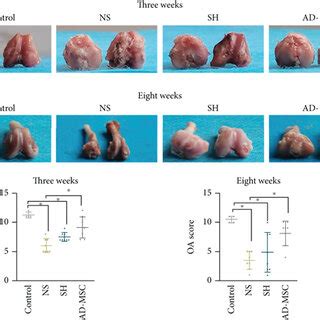Understanding and Treating Guinea Pig Colic
Guinea pigs, with their charming personalities and adorable antics, make wonderful companions. However, these small creatures are prone to a serious and potentially life-threatening condition: colic. Understanding the causes, symptoms, and treatment of guinea pig colic is crucial for responsible ownership. This comprehensive guide will equip you with the knowledge to recognize and address this condition effectively, potentially saving your furry friend's life.
What is Guinea Pig Colic?
Colic in guinea pigs refers to abdominal pain and discomfort. It's not a specific disease itself, but rather a symptom of an underlying problem affecting the digestive system. This can range from simple gas and bloating to severe obstructions and infections. The severity of colic varies greatly, and prompt veterinary intervention is often critical.
Common Causes of Colic in Guinea Pigs
Several factors can trigger colic in guinea pigs. Identifying the cause is crucial for effective treatment.
1. Dietary Issues:
- Sudden diet changes: Abrupt shifts in food can upset the delicate gut flora, leading to gas and discomfort.
- Insufficient fiber: A diet lacking in hay, the primary source of fiber, can cause digestive sluggishness and constipation, contributing to colic.
- Overfeeding pellets: Excessive pellets can lead to obesity and digestive problems.
- Ingestion of foreign objects: Guinea pigs may accidentally ingest bedding materials, toys, or other items, causing intestinal blockages.
2. Other Medical Conditions:
- Dental problems: Malocclusion (misaligned teeth) prevents proper chewing, leading to undigested food and potential blockages.
- Infections: Bacterial or parasitic infections can inflame the digestive tract, causing pain and discomfort.
- Parasites: Internal parasites can contribute to digestive issues and colic.
3. Stress and Environmental Factors:
- Stressful environments: Changes in environment, overcrowding, or interaction with unfamiliar animals can trigger digestive problems.
- Lack of exercise: Insufficient movement can contribute to constipation and colic.
Recognizing the Symptoms of Colic in Guinea Pigs
Early detection is key to successful treatment. Watch for these warning signs:
- Lack of appetite: A significant reduction or complete loss of appetite is a major red flag.
- Lethargy and weakness: Your guinea pig may appear unusually sluggish and weak.
- Abdominal distension: The belly may appear swollen or bloated.
- Grunting or straining: They may make noises while attempting to defecate or urinate.
- Unusual posture: They might hunch their back or lie in an unusual position.
- Diarrhea or constipation: Changes in bowel movements are common.
- Excessive grooming of the abdomen: They may spend a lot of time licking or grooming their belly.
What to Do if You Suspect Colic
If you observe any of these symptoms, immediate veterinary attention is crucial. Delaying treatment can worsen the condition and lead to life-threatening complications. While you wait for your appointment:
- Provide fresh, clean water: Ensure access to clean water to prevent dehydration.
- Offer small amounts of hay: High-fiber hay can help stimulate digestion (if your guinea pig is willing to eat).
- Avoid giving any other foods or medications: Do not attempt to self-treat; this can worsen the situation.
How is Guinea Pig Colic Treated?
Treatment depends on the underlying cause. Your veterinarian may perform a thorough physical examination, palpation of the abdomen, and potentially X-rays or ultrasounds to determine the cause. Treatment options might include:
- Dietary changes: Adjusting the diet to increase fiber intake or switch to a more digestible food.
- Pain relief: Medications to reduce pain and discomfort.
- Fluid therapy: Administering fluids intravenously to prevent dehydration.
- Medication for infections or parasites: Antibiotics or antiparasitic drugs if an infection or parasite is identified.
- Surgery: In cases of severe obstructions or other complications, surgery may be necessary.
Frequently Asked Questions (FAQ)
How can I prevent guinea pig colic?
Prevention is key! Providing a balanced diet rich in hay, limiting pellets, ensuring fresh water, minimizing stress, and regular veterinary checkups are crucial. Early detection of dental problems is also vital.
What kind of hay is best for preventing colic?
Timothy hay is generally recommended as the primary hay source for guinea pigs due to its high fiber content.
Can I give my guinea pig medication for colic without a vet?
No, never administer any medication without consulting your veterinarian first. Improper medication can cause serious harm.
How long does it take for a guinea pig to recover from colic?
Recovery time varies depending on the severity of the condition and the underlying cause. Some cases resolve quickly with treatment, while others require more extended care.
What are the long-term effects of colic?
Untreated or severe cases of colic can lead to long-term digestive problems, weight loss, and even death.
By understanding the causes, symptoms, and treatment options for guinea pig colic, you can become a more informed and responsible caregiver. Remember, early intervention is vital. If you suspect your guinea pig is suffering from colic, don't hesitate to seek immediate veterinary help. Your proactive approach can make a significant difference in your furry friend's health and well-being.

